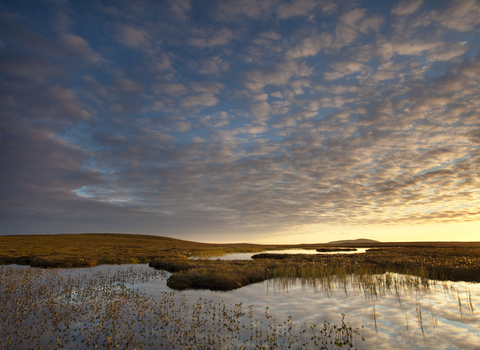In a vast amphitheatre, multiple screens portray images of nature across the United Arab Emirates.
We are here in Abu Dhabi, at the opening ceremony of the International Union for the Conservation of Nature (IUCN) World Congress. This is a gathering of nature experts from across the global community to listen to talks, network, learn, be inspired and set out new strategies for to restore the world’s biodiversity.
Held every four years, the World Congress sets the direction of IUCN and in turns helps its members – Governments, public agencies and charities – to align their strategies into the global nature conservation cause.
The United Arab Emirates pride themselves on harnessing the cultural traditions of Arab hospitality to develop global consensus, not least for climate and nature. Despite the fact that the country is deeply embedded in the fossil-fuelled unsustainable development that has so damaged the planet, it is clear that biodiversity conservation and restoration are central to Government policy and, crucially, investment.
Amongst the towers and air-conditioning of Abu Dhabi is a huge mangrove swamp – a source of pride that featured prominently in the opening ceremony national anthem film.
"We must see opportunities in the midst of crisis"
We begin with Surangel S. Whipps Jr, President of Palau – an island nation at the front line of the climate crisis – arguing that we must not be paralysed by the nature and climate crisis but see the opportunities in the midst of crisis to reset, learn from each other and heal planetary resilience by restoring nature.
He notes the role of global partnership, focussing on the ‘Plastics Convention’ that is slowly working its way to a conclusion. This is a global issue which significantly impacts Pacific islands, yet they contribute little plastic pollution themselves. He also acknowledged the importance of protected areas for nature – with 80% of their marine area protected for nature, which puts the UK’s 28% of marine area (part) protection into sharp focus.
Royal Highness Princess Lalla from the UAE noted that we must do more and not be afraid to do things differently.
“Hope is not naïve, it is a decision – let us choose hope”
The President of IUCN, Razan Khalifa Al Mubarak, notes that the global processes of countries working together are under strain and that many decision-makers continue to act as if we are not part of nature.
IUCN unites Governments, civil society and communities and together is bringing partners together to move nature policy, practice and research forward. But is it enough? Is the world moving fast enough to halt biodiversity loss? Are finance and technology sectors meeting the needs of nature?
There are great steps forward, for example the High Seas Treaty and the recent International Court judgement that cements the role of Governments to restore nature.
Her message that “Nature is not a sector of the economy, it is the living system that sustains it” is one much needed by the UK, where the Chancellor of the Exchequer proudly disregards nature for growth.
A strong takeaway from her speech is that “Hope is not naïve, it is a decision – let us choose hope”.
We are more powerful together
Hope is a theme picked up by the Director General of the IUCN. Since 1948, IUCN members have walked a journey of hope together and will never give up. United we are far more powerful than individually.
We, The Wildlife Trusts, work together because we are more powerful together. At the founding of IUCN in 1948, it was The Wildlife Trusts promoting that same understanding and it is heartening to hear the Director General continue that tradition.
Just as The Wildlife Trusts are about collaboration for the common good, IUCN is about collaboration for the global good.
You can follow along with the IUCN World Conservation Congress on our WhatsApp Channel. We'll be sharing behind-the-scenes stories and updates during the week.


